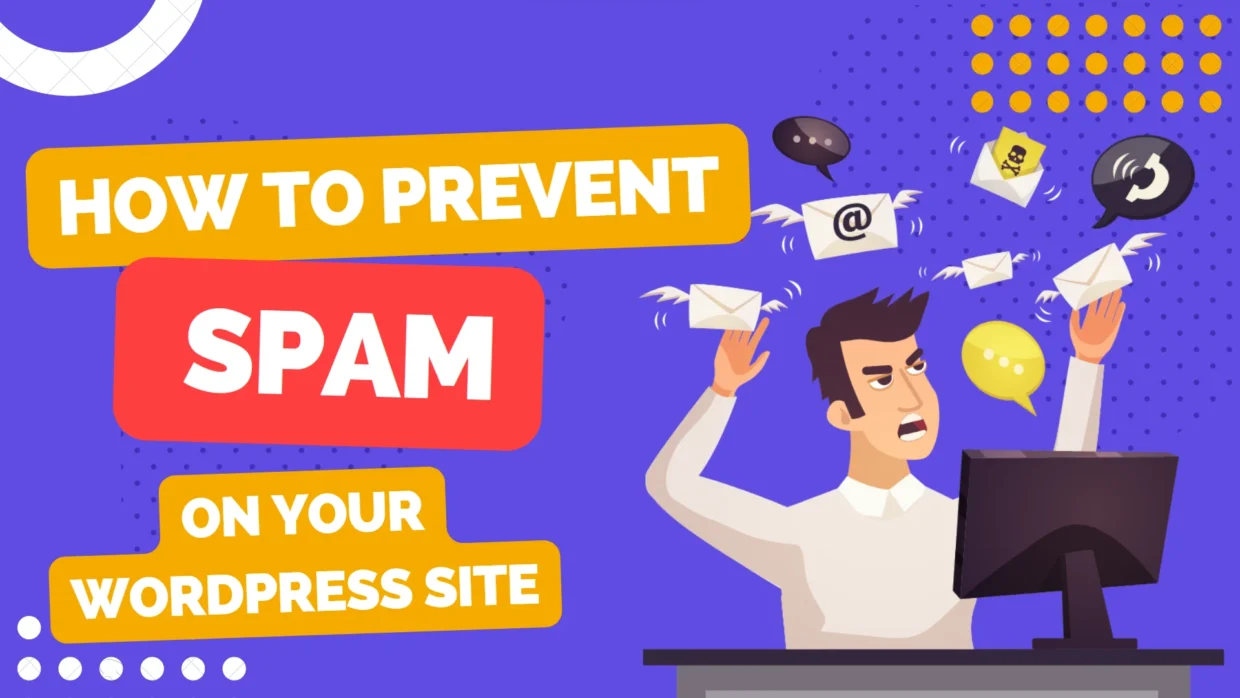In the digital age, maintaining a WordPress website is essential for businesses and individuals alike. However, one persistent issue that website owners often face is spam. Spam can infiltrate your website through comments, contact forms, and even login attempts, causing a nuisance and potentially harming your site’s reputation. In this comprehensive guide, we’ll walk you through effective strategies and techniques to prevent spam on your WordPress site, ensuring a clean and hassle-free online presence.
Understanding the Impact of Spam on Your WordPress Site
Before delving into preventive measures, it’s crucial to comprehend the negative consequences of spam on your WordPress site. Spam can:
- Degrade the user experience
- Damage your site’s credibility
- Slow down your website’s performance
- Increase server load
- Pose security risks
Now that we’ve highlighted the significance of tackling spam let’s explore effective strategies to keep it at bay.
01. Install and Configure a Captcha Plugin
One of the most popular and effective ways to prevent spam is by using a captcha plugin. Captcha tests require users to prove they are human by solving puzzles or entering specific characters. Popular captcha plugins for WordPress include Google reCAPTCHA and Really Simple CAPTCHA.
02. Implement Strong Password Policies
Weak passwords are a significant vulnerability when it comes to spam and security breaches. Encourage users to create strong, unique passwords by implementing password policies that require a combination of uppercase and lowercase letters, numbers, and special characters.
03. Utilize a Spam Filter for Comments
Spammers often target your comment section. Combat this by utilizing a spam filter plugin like Akismet, which automatically detects and filters out spam comments.
04. Enable Comment Moderation
Manually moderating comments allows you to review and approve them before they appear on your site. This extra layer of control ensures that spam comments never make it to your website.
05. Update Your WordPress Core and Plugins
Outdated software can be vulnerable to spam attacks. Regularly update your WordPress core, themes, and plugins to ensure they are equipped with the latest security features.
06. Utilize .htaccess Rules to Block Suspicious IPs
You can use .htaccess rules to block access from known spammy IP addresses. This prevents malicious users from even reaching your website.
07. Implement Email Verification for User Registration
Require users to verify their email addresses during the registration process. This step helps ensure that only legitimate users can create accounts on your site.
08. Use the Akismet Anti-Spam Plugin
Akismet is a powerful anti-spam plugin that analyzes incoming content for spammy characteristics. It’s an invaluable tool in the fight against spam.
09. Opt for a Managed Hosting Solution
Consider using managed WordPress hosting. Managed hosts often have built-in security features and provide excellent support in case of spam-related issues.
10. Monitor User Registration Closely
Keep a close eye on user registrations. If you notice suspicious activity, take immediate action to prevent spam accounts from proliferating.
11. Consider Content Restrictions for Comments
Implement content restrictions to limit the types of links and content that can be posted in comments. This can deter spammers from using your site as a platform for their activities.
12. Regularly Back Up Your Website
In the event of a spam attack or other security issue, having a recent backup of your website can be a lifesaver. Regularly back up your site to ensure you can restore it quickly if needed.
13. Educate Yourself and Your Team
Stay informed about the latest spam tactics and educate your team on best practices for spam prevention. Awareness is key to staying one step ahead of spammers.
14. Stay Informed About the Latest Spam Trends
Spam tactics are continually evolving. Stay up-to-date with the latest trends in spam to adapt your prevention strategies accordingly.
Conclusion
Preventing spam on your WordPress site is a crucial aspect of maintaining its integrity and user experience. By following the strategies outlined in this guide, you can significantly reduce the risk of spam infiltrating your website. Keep your WordPress site clean, secure, and hassle-free for both you and your visitors.
FAQs
- What is spam, and why is it harmful to my WordPress site? Spam is unsolicited or irrelevant content that can harm your site’s user experience, credibility, and security.
- Do I need technical expertise to implement these spam prevention measures? While some measures may require technical knowledge, many can be implemented with the help of plugins and user-friendly settings.
- Is it necessary to use multiple spam prevention methods, or is one enough? Combining multiple methods provides better protection. Layered security is more effective in preventing spam.
- How often should I update my WordPress core and plugins? Regular updates are essential. Aim to update as soon as new versions become available to stay secure.
- Are there any free spam prevention plugins available for WordPress? Yes, many free plugins like Akismet and reCAPTCHA offer effective spam protection for WordPress users.

